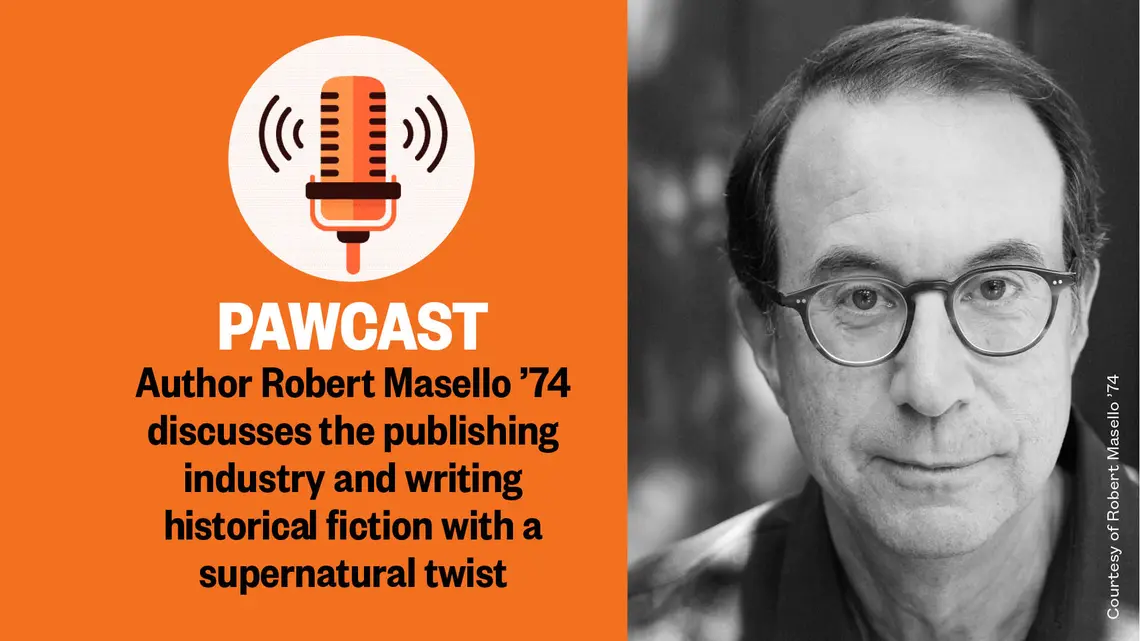
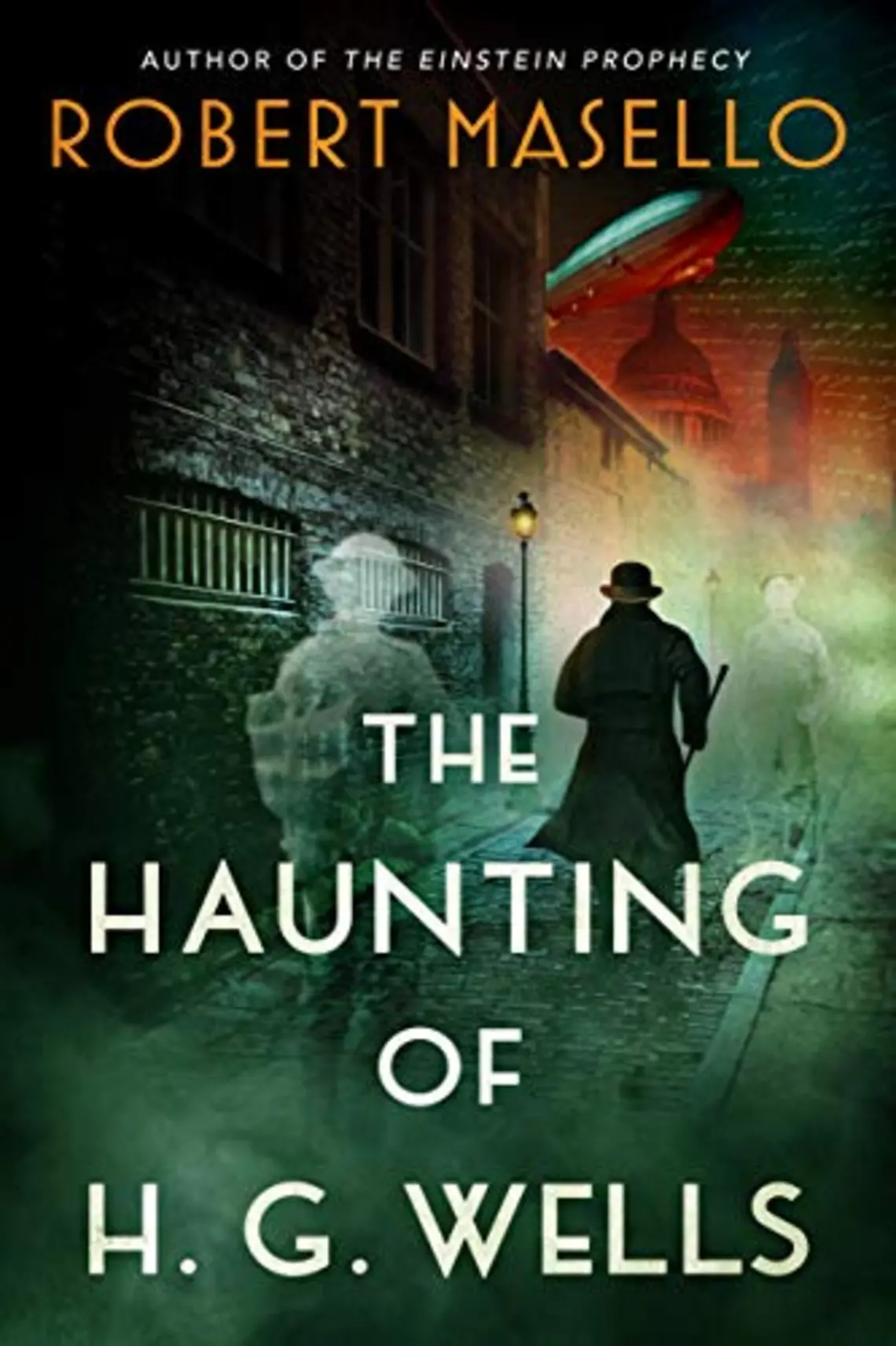
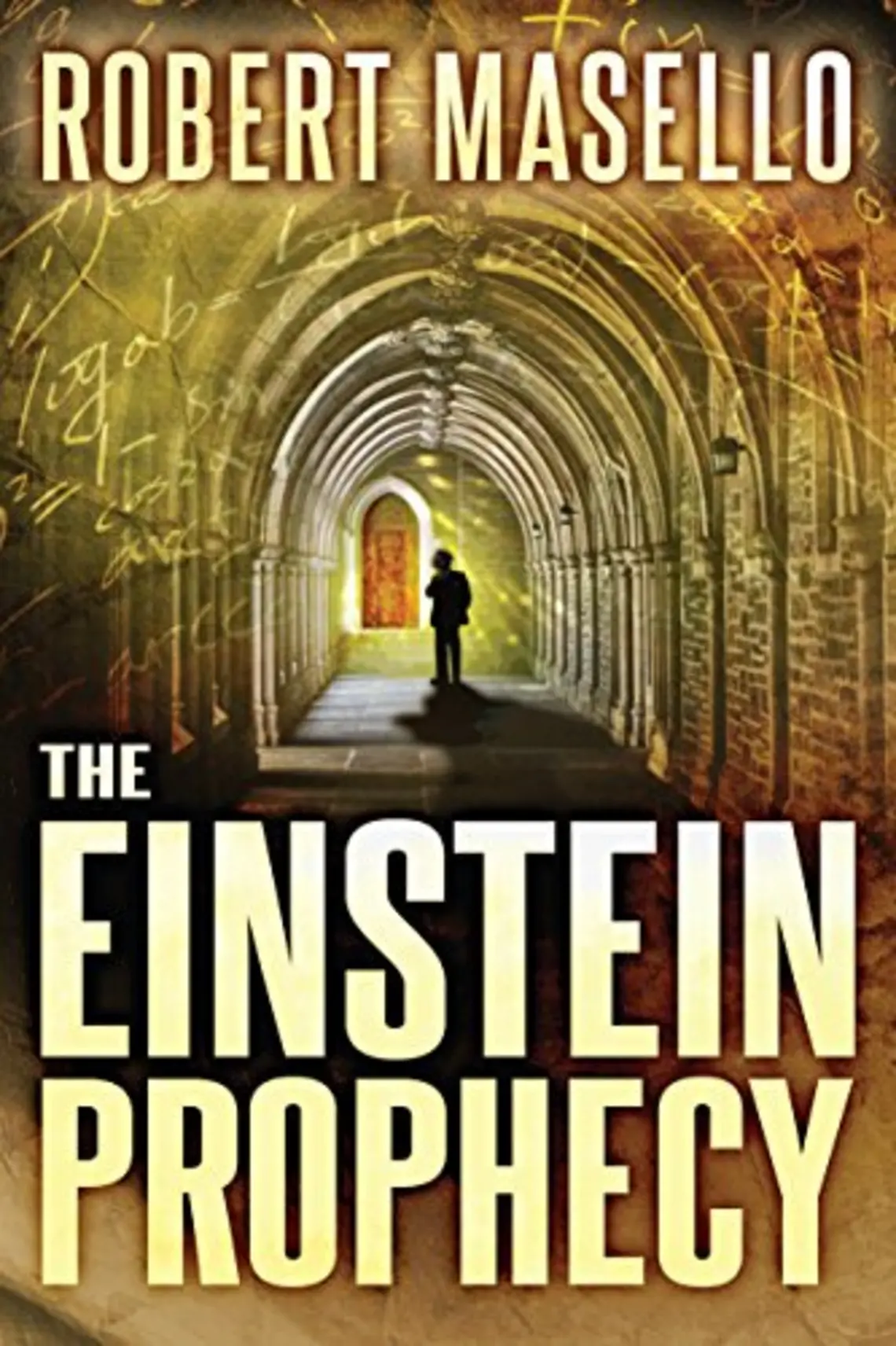
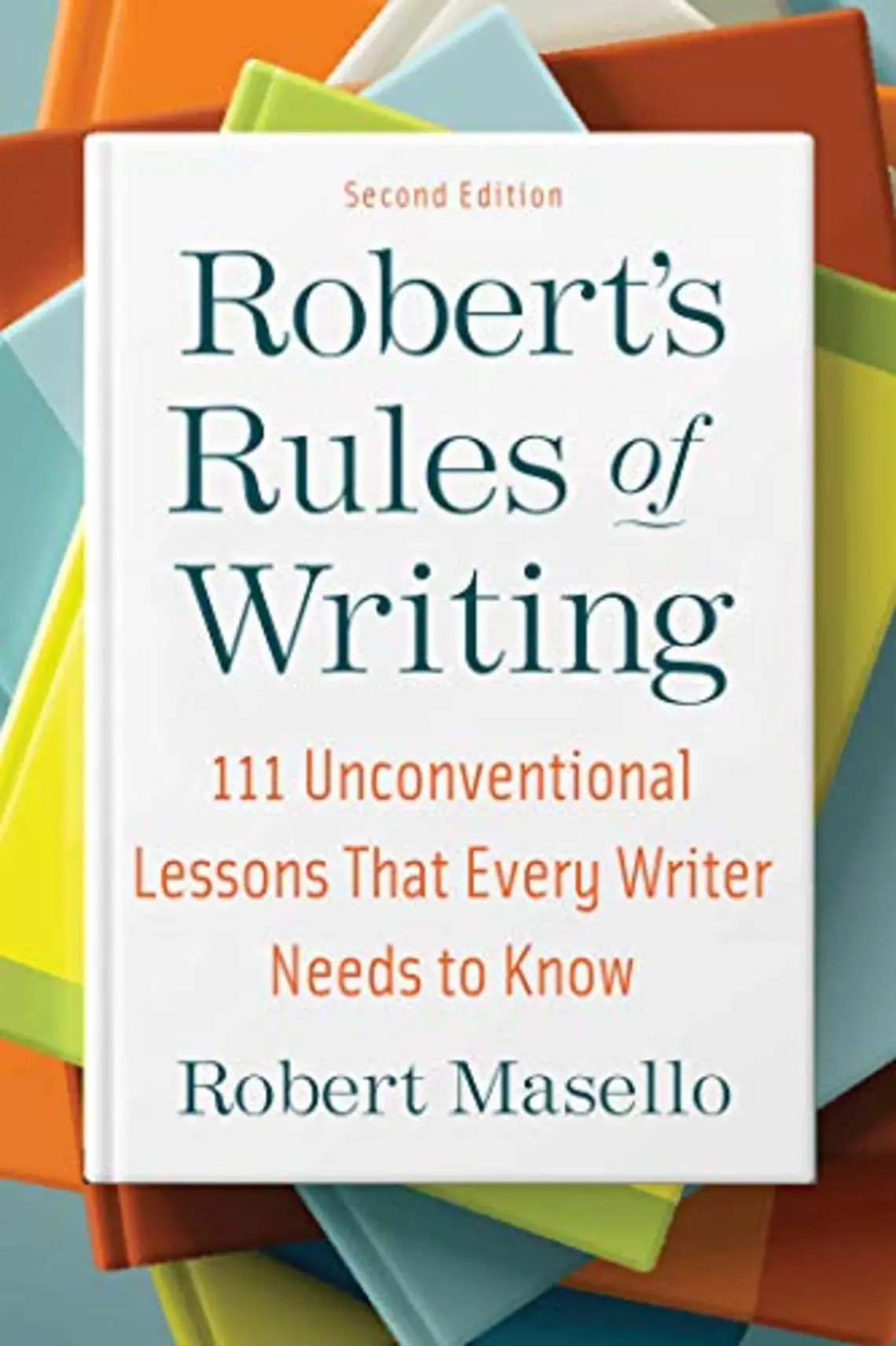
PAWcast: Robert Masello ’74 on Writing Historical Fiction and the Publishing Industry
‘I just want writers to have that liberty of imagination’
Find more PAWcasts online here
Robert Masello ’74 has carved a niche in the writing world: His novels place real historical figures in fictional stories with a touch of the supernatural. One follows Albert Einstein into a battle between good vs. evil at Princeton; the latest sends H.G. Wells through a haunted adventure. With a second edition of his nonfiction book about writing due out in September, Masello shared his story on the PAWcast along with advice for aspiring writers.
Listen on Apple Podcasts • Google Podcasts • Spotify • Soundcloud

Liz Daugherty: In Robert Masello’s novels, the truth plays a game with fiction. Protagonists leap out from the history books, often to brush up against the supernatural. In one, British writer H.G. Wells barely survives a trip the front of the Great War, only to return seeing ghosts. In another, Albert Einstein himself becomes an unknowing pawn in a battle of good versus evil set — where else? — at Princeton. Over his career, Masello has seen all corners of the publishing industry and in this episode of the PAWcast, he shares tips for navigating that world, for writing, and for deftly mixing facts with imagination.
Robert, thank you for being here.
Robert Masello: Hey, it’s my pleasure, thank you for having me.
LD: So you’ve done that thing that so many people dream about: You’ve built a career out of writing books. Would you tell me about your path to becoming an author and maybe anything about your Princeton experience that played a role?
RM: Well there’s a lot to unpack there but I did start out as a journalist. I mean after I got out of Princeton I went straight to New York, I’d been a Mademoiselle guest editor, people may know about that. Sylvia Plath had been one and wrote a book, The Bell Jar, about the experience. But that had introduced me to New York journalism. So I went there, and I went at Esquire and GQ were my first jobs, and then I started writing for magazines. But in terms of books I do remember I was at a party at a Four Seasons restaurant, I think, and the editor of Travel and Leisure, a wonderful woman named Pam Fiore, and I were standing to one side, and I was saying about one of the dancers, a guy who was, one of the writers who was dancing on the dance floor, “Wow I want to have a career like his.” And she turned to me, and she said, “He’s had a good career, but he hasn’t ever written a book.” And when she said that it struck me like, oh, after you’ve been a journalist for a number of years and you’ve written a lot of pieces for a lot of the magazines and newspapers — and I was writing a lot for New York Newsday in those days — the next step you were supposed to take to advance yourself was a book.
And it really hadn’t occurred to me until she said that, but the weird thing was within like a month out of the blue two or three agents contacted me as if the universe was saying, “You have now written enough stuff, that’s gotten around enough, you’ve been noticed, you’ve been writing a column in Mademoiselle, you’ve been writing a column in Glamour,” and suddenly there were agents willing to take me on, and you know, willing to also show me the business and figure out, well how do you do this.
LD: How about Princeton was there anything here? Did you study writing while you were on campus?
RM: Absolutely, I had the best teachers. I had Geoffrey Wolff (’60), who is I think just one of the preeminent essayists. He also wrote novels. But his nonfiction is superb, and he was very complimentary about my work, which was great, because it had validated me, like, maybe I do have something here. And of course, listen, as we all know lots of us go to Princeton because of F. Scott Fitzgerald (1917). Princeton seemed to me to be the place you went — and my mother even had me reading Booth Tarkington (1893), another Princeton guy, when I was a kid, and Richard Halliburton (1921), so I read all of his books about adventure and exotic travel.
So I was primed because Princeton was the place you went to a be writer. And my teachers were Geoffrey Wolff, and then the next year I had the visiting writer Robert Stone, and Robert Stone, I mean I think the man was genius, everything he taught me was very good. But the funny thing was I’ll admit he did not like what I was writing, which made me respect him all the more. Because I didn’t realize — I was turning in stories about kids who tried drugs and the drugs were the worst thing that ever happened to them. And I’m turning this in to one of Merry Pranksters, one of Ken Kesey’s buddies, a guy who has done his fair share of that kind of thing. So I think he thought I was just a sellout and that all I wanted to do was write stories that would get into Seventeen magazine. Liz, that’s exactly what I was trying to do and did. So you know I was priding myself on, look I’m selling this stuff, but it wasn’t the kind of material that he would warm to. But I admired him enormously — his books are great.
LD: So let me ask you — I want to talk to you about what I think you call the “literary industrial complex.” You started at traditional publishing houses and then made the decision to switch to an Amazon-owned imprint, which I should note is not the same thing as self-publishing. Would you tell me about your experiences?
RM: Sure. It’s a vast terrain and that’s why I do call it the literary industrial complex, it’s just — and I have been in every portion of it. I mean, I started out writing some cheesy paperbacks for Simon & Schuster and other places, and then gradually was able to move up the chain into writing hard cover longer books. And you know what helped with that a lot was actually the advent of things like the search engines like Google and stuff. Because my books are historical suspense, and I used to have to spend, not kidding, months in the New York City public libraries getting research materials and Xeroxing things. And now, in the middle of the night, if I want to find out what a Chilean navy uniform looks like I can look that up and get it right, because in my historical suspense novels, of which I’ve written quite a number, it’s important to me to get at least 90 percent of that stuff right. I always have to embellish a little bit in terms of compressing a timeline or something like that, but I want to get all the details correct because you do hear from readers.
I gradually moved up to the point where I was getting good contracts from Random House and places like that to write very long, very detailed historical suspense books, usually with a supernatural twist. The reviewers always said, “Oh, it’s like Michael Crichton meets Steven King, or H.G. Wells meets Dan Brown,” or something. I should be so lucky, by the way, but it’s in that category. And I did a number of books that way, and I could have stayed there — those are called the legacy houses, as you probably know, and there’s fewer and fewer of those with consolidation in the publishing business.
But my agent, who has a lot of foresight, said, you know, just in case you want to consider it, I have several authors who have made the jump to being published by an Amazon imprint. And I rebelled. To me that was like, no, no, I’m not leaving Random House and Simon & Schuster and the names. And she said, you don’t have to, we can stay where we are, but a lot of my writers are finding that your books get out differently, they reach a bigger audience, faster. And so, reluctantly, it reminded me of — remember way back when, when there was network television and there was cable, and cable was definitely second tier, second class? That’s how I was thinking of it, but boy was I wrong. Because now especially I mean things are so topsy turvy, you know, cable is where you watch most of the shows you enjoy, I mean the off-network stuff. And with publishing, Amazon became an alternative to legacy publishing that is in many ways preferable.
And I was very surprised by that. I’m glad you made the distinction because when you say published by Amazon what that means to most people is, oh, you self-published. But that’s not what this is. Because Amazon does have, I’d have to check this, probably about a dozen imprints now, and they are all by genre and category. There’s Thomas and Mercer, there’s Montlake, there’s 47North, and each one of those has its own audience. And what I’ve discovered with publishing through Amazon — although this is not an ad for Amazon — but with Amazon what you get is a different publishing experience.
When you publish, and this is for anybody out there who is interested in publishing a book, if you publish with the legacy houses you will get an advance, probably these days they are much smaller than they used to be. But let’s say it’s $50,000 you’re getting for the book; you’ll get $25,000 when you sign, and you’ll get $25,000 on delivery and acceptance. But that’s a long period of time. When you get the first check you go, “I’m rich, yay!” You want to celebrate but you forget that you’re going to have to live on that for six months, for a year, however long. With Amazon you get an advance, you get an editor just as you would if you were with Random House or Harcourt or any HarperCollins, anyplace, and you work at the same rate, the same pace. I always sign a contract with the understanding that whenever the publisher signs the contract the book will come in one year from that date later, so that I don’t get stuck with them hemming and hawing and I’m wondering whether I should be writing or not.
But with Amazon what you also get is they pay your royalties differently — should I be getting into the weeds here? I don’t know. With a major publishing house, you get your royalties maybe twice a year and then hold a reserve against them, it’s complicated. But with Amazon — oh, my God — every day, and this is something probably every writer does who publishes a book with one of the Amazon imprints, every day you can go on the website and you can see exactly how many copies you sold, the day before, of every one of your titles. You can even break it down and go, I’m big in Canada but why am I failing in Australia? You can monitor it, they pay you monthly, so that as a writer — I mean all my life ever since college I’ve pretty much been on my own writing journalism and writing books, and then writing television shows for a while in L.A. It’s very difficult to plot your income and to plot your life, but when you publish this way every month I know exactly what I earned, what the check is going to be. It evens things out the way that an antidepressant might, you know? You won’t get as happy, but you won’t get as depressed, you will always be on the median line, and you can kind of regulate your life, you can see which books are doing well.
And the other thing that — and again this is not supposed to be an advertisement for Amazon — but they are adept at promoting your work to the right audiences and keeping it afloat. What happens with the legacy houses is your book comes out, maybe there’s a splash, you get some reviews in the trade publications and maybe in the general publications, but then the book tends to disappear after maybe six months, you’re history. But I find that with the books that I published lately through various Amazon imprints, they keep buoying them up, they keep offering it — oh if you like that, you’ll like this and here’s a special offer. So that the book has a much longer life, which is something that bothered me when I first started writing books years ago: You would write a book but by the time your next one came out, the previous one was no longer available, except in like secondhand bookstores. So you could never build that momentum unless you were writing really regularly and really fast, and I write irregularly and I’m really slow. So that was a bad combination.
LD: So let’s talk about some of your books. I’m interested in this genre where you’ve carved a niche, this historical fiction with a supernatural twist. What drew you to it?
RM: I wrote a book a thousand years ago called What Do Men Want From Women?, and it was published by Ballantine, it was their title, and it was based on a column called “His” which I had been writing in Mademoiselle for many years. So they finally said why don’t you write a book about your social life and your sex life, that was a very short section of the book. It was mostly about failed dates and my feelings about monogamy, jealousy, whatever. And the book did fine, but I had some problems with the distribution. I did a massive national book tour and every time I went to a city I would be on the morning talk shows and I would go to the bookstore in the evening and when I got there the book had not yet arrived, it wasn’t delivered. That’s an author’s worst nightmare to see a hundred people there waiting to buy your book and there’s no book present.
So I had some issues at the time, and I said to my agent I want to start with a different publisher, I want to go in a different direction. He said well, he was from the South, he said, “Well, Robert, you’re going to have to give them one more book because the contract says you owe them the next book.” And I said, “But that’s all it says, I just have to give my next idea right?” He says, “Well yeah.” So I wrote three pages of a scary story, and I gave him the three pages and he said, “Robert I can’t offer them three pages.” I said, “Contract doesn’t say how much I have to offer, give them the three pages.” So he showed the three pages and lo and behold they came back, and he said to me, “Robert, I’ve got good news and I’ve got bad news. The good news is they like those three pages; the bad news is I don’t know if you know how to write a novel.” And I said, “John, I went to Princeton, I read Middlemarch, I read Mill on the Floss, I read Great Expectations. I can do this.”
So I wrote that book which was kind of a scary story about a Princeton guy who goes out to Long Island where he inherits an estate. In any event it did well, and so as a result — and this is what happens in publishing a lot — is I got asked to do another in that vein. And that one did OK, in fact that one was picked up in England and published there. Then I wrote another one which didn’t do so well, but I sort of had begun to do that genre. It’s not that I’d set out to do that, but it’s not alien to my heart. So I was mixing things up as I mentioned earlier, jumping around. And then about I don’t know maybe 10 years ago, 12, 13 years ago, I hit on a great formula. I always worried that I wasn’t creating interesting enough protagonists, my heroes weren’t interesting and varied and rounded enough. Then I thought, wait a minute, there’s all these wonderful historical and literary figures. What if I just use them and build the books around them?
So I wrote a book, one of many, called The Medusa Amulet, but it’s based on the life of Benvenuto Cellini the Italian Renaissance sculptor. Because when I was a kid I had read his autobiography, which I loved, but it ends very abruptly when he’s about to set off on a horseback ride across the marshes. And I remember thinking I wonder how that story ends, I wonder what else happened to Cellini, who was a really interesting character, not only one of the greatest sculptors in history but a necromancer in his spare time and a diplomat and a soldier. And so using Cellini as my main figure I was able to embroider a whole big story around him. In fact the book was originally called The Cellini Secret, but the publishers thought, “Nobody knows who Cellini is, you’d better not do that.” I think they’re wrong.
But then I wrote a book about Einstein of course, which my agent — I do love her, but I think she thought I was crazy, because I said I’m going to write a supernatural thriller with Einstein as the central character set in Princeton. At last territory that I know, and I don’t know, I don’t think she was enthused. But the book was fun to write and it also — I will admit it has sold now, I don’t know, it’s well over half a million, I think it’s more like seven hundred thousand copies if all told. So obviously it hit a nerve, and my only fear was, my God, I’m going to be putting words into Einstein’s mouth. They can’t be stupid. They won’t be as smart as Einstein, but I can’t embarrass myself or him. The memory of Einstein is dear to me, I love that man. That book did well and then I subsequently wrote some other books with Robert Louis Stevenson as the protagonist and that one was called The Jekyll Revelation, and then there was The Night Crossing which has Bram Stoker as the protagonist, then I wrote a book, well most recently, H.G. Wells, The Haunting of H.G. Wells, he’s the protagonist of that book.
So each time it was great. I was able to immerse myself in a section of history, I had a built-in great character. If you can develop a niche that’s a good thing.
LD: And that stems right into something I wanted to ask you about which is when you do that, when you take a real person, and you make them a character, how do you decide what liberties to take with them and what parts of history you’ll be faithful to? And you can never really get in their head because they’re a real person and they really existed, so how do you try to do that?
RM: There’s a lot of things you do to try to do that and again I don’t claim to be inspired when I do that. But you can read somebody, even H.G. Wells for instance, there’s a lot of their letters, you read their letters and you read all about their lives. You can’t get lost in the research or you’ll never come out, but I read a few authoritative books about each person. Robert Louis Stevenson wrote volumes and volumes. Bram Stoker wrote tons of other material, all of which I think was really pretty bad.
But I try to get as much of their attitude and their life in as possible, and I don’t take any major liberties that I can avoid taking, and if I do, God bless the afterword, because I always have an afterword in my books which says, “Kids don’t write your term papers based on what you read here.” You know 90, 95 percent is accurate in terms of you know when the Crimean War was fought or whatever, because I wrote a book about the Crimean War called Blood and Ice. But I also say here’s where I took some liberties; for instance, I did put Bram Stoker on the Titanic. He was not on the Titanic, that’s the biggest major change I made. So I allowed that to happen, but I tell people, like, he wasn’t on there, but all these dates lined up neatly and I thought it was a cool way to end the book.
Normally I just try to stick as close to the facts as I can, though then you hear from readers. I just got a nasty email, not an email, a review on Amazon from a woman who objected to my H.G. Wells book because she said it was morally reprehensible and disgusting that my H.G. Wells character, 46 years old, is having an affair with a 19-year-old girl. Well, I didn’t make that up! That was what was really happening, and that girl turned out to be one of the most important English journalists of her day, Rebecca West. But he did indeed have an affair at those ages, but this woman was impugning it to me, she goes, “Oh, all these middle-aged writers who just have to fantasize about what they imagine all these young girls are going to fling themselves at them.” I wanted to say it’s not me — that happened, I couldn’t get around it, that was the love affair of his life, and it’s fact.
But you’ll hear from people about every little thing that you might or might not get right. In Blood and Ice I had a scene set in Antarctica, and I have a meteorologist who reads all my books and he’s always calling, he wrote me and said, “Listen, pal, you have people at the South Pole at one o’clock in the afternoon and they’re travelling back to the base, and yet you say that the slanting sunlight was over his right shoulder. Any idiot would know that it would be over his left shoulder unless he was moving in such a direction.” They’ll catch you on anything.
Oh, with Einstein, I have Einstein in the Princeton Chapel. If you read the book you might remember the scene where he offers a Smith’s cough drop to another character. Now I know that Smith cough drops had been invented way, way before that like after the Civil War, I looked it up, but the copy editor, God bless her, said, “You have Einstein offering the other man a wild cherry Smith Brother’s cough drop. It’s 1944, Smith Brothers did not invent wild cherry flavor until 1946. Do you want to change that?” I said, “Well, what flavor was available in 1944?” She said only the mentholated. So we made it back we changed it to mentholated, lest, I get a note from a reader saying no, my God, you threw me out of the book, wild cherry wasn’t invented until two years later.
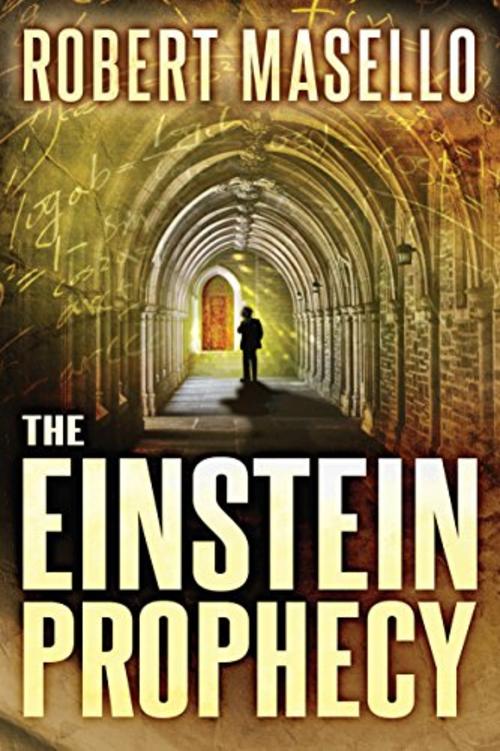
RM: It was fun, but you know what it was also really troubling and hard. There wasn’t a lot that I was able to draw on. I had to imagine some of it, but I also got — this is so great, I got from one of the alumni wives from a class that had been there then. I don’t know how I actually found her, I might have put out an appeal through the Weekly or something — but she had her husband’s notes, diary or something from his Princeton days in that era. And she Xeroxed it and sent it to me, so I was able to read what he had to say about what the campus felt like in those days when he was 18 and everybody else — you know, many had gone off to war and stuff like that.
So I had that, I got some maps of Princeton from that era, so that I didn’t put something there that wasn’t there, but the ethos and the feeling of the campus and the town and all I thought I pretty much could conjure up. You know I also had the books about Einstein and they have a lot of material about Princeton at that era and his reception in the town, which was very mixed. There were people who thought he was a communist, which was why he was not allowed to work on the Manhattan Project, and you know a wild-eyed crazy liberal with the crazy hair and all of that. He was an ardent pacifist all of his life. When the Second World War happened, and he saw what would happen if the Nazis got to various things first, he bent the rules a little bit, as he should have and he did.
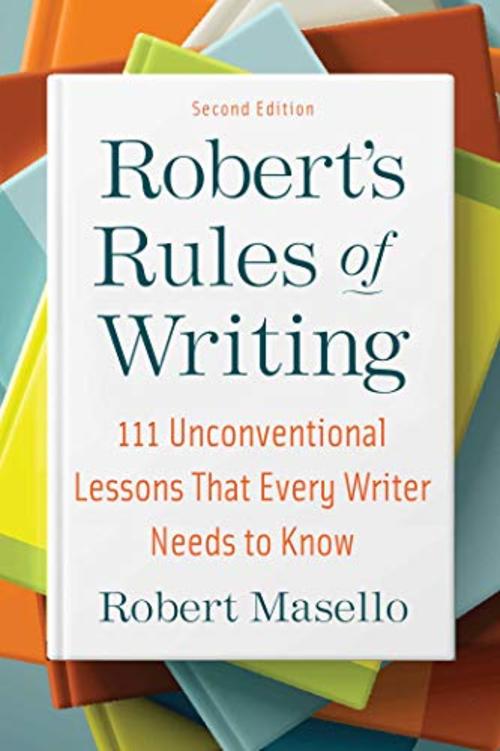
RM: Yeah, that is a book, Robert’s Rules of Writing, which I wrote I think 18 years ago, and it had fallen out of print because the publisher went out of business. As so another publisher came forward and said you know we’d like to reissue it, it was never done as an eBook, and I said, well, let me glance over it. And I figured it would take a day or two to just brush it up and make sure I don’t have any references to, you know, the hot young singer Wayne Newton or something like that. And oh, my God, I was not a woke guy when I wrote that book — oh my, God, all the examples from other writers and my allusions unfortunately were to a lot of dead white males. I mean the most current being Milton, I mean it was just, I thought, “All right we have to make this book more diverse, we have to address things like cancel culture and cultural appropriation.” So I really had to go through there and brush up all the references, you know, Cyndi Lauper is not top of the charts right now.
But even one of the rules that you mentioned, throw out your thesaurus, my feeling is when you’re working that hard to find a word it’s not in your working vocabulary probably. And what you want to do when you are writing is remain fluent and remain who you are and how you sound. Getting your voice is the hardest thing.
There’s a lot of other rules. One is, well, one is just use the word “said,” a lot of writers have been told oh there’s always a better word for that. “Said” is one of those words that when we’re reading it we don’t even really hear it.
I also had to answer some questions I’ve gotten on things and addressed the question of cultural appropriation, which came up because of, largely, American Dirt, the book by Jeanine Cummins, because she was writing about a Mexican woman who owns a bookstore and her son trying to escape from narco traffickers who were after her life in Mexico. But she herself is not Hispanic, except in small part, and so she got nailed for that. But as a writer it really rankled me because I just, I feel like a writer’s job is to just render as accurately as he can and as truthfully as he can the whole realm of human experience, and we’re allowed to write about whoever we want and try to do it. Now the problem for that book may have been, according to her detractors, that she just got too much of it wrong, and that’s a danger you run, but I think, you know, the best antidote to that is to write a better book. If you object to her book, write a better book.
Because I have taken lots of liberties in my books. I mean, some of the protagonists are women sculptors much younger than I am. Things like that. And that’s part of the challenge is, you know, can I carry this off? And if you can’t, you know, yeah you’ll hear from readers and the book won’t do well. But I just want writers to have that liberty of imagination. Then I found a quote from none other than Toni Morrison when she was lecturing at Princeton, and it was about how she tells her students — or told her students — you know, don’t write about what you know, write about whatever you want to imagine. Imagine that you’re a marquis in the south of France in another century. Then she even said imagine you’re a Mexican forging across the Rio Grande. Go there, do that, inhabit that, and she said — this is Toni Morrison talking, Nobel Prize winner — she said that really freed their imaginations to write about themselves and their experiences later on. And she felt it was a great imaginative opening for them and that they loved it too, and that the writing was better.
LD: Well you know we’ve gone through all of my questions is there anything else you’d like to discuss?
RM: To anybody who is thinking about writing — I mean there’s consolidation in the major houses and stuff like that, but boy there are so many other avenues now. There are so many small presses, there’s so many ways to get your stuff out. And it did used to be true that if you self-published something yourself and put it out there it was doomed; no major publisher would then look at it or touch it or whatever. That was true for many years. It has not been true for many years since. So if you’ve got something and you can’t find somebody to bring it out, put it out there yourself. If you write it well and you write it earnestly and you write it from your heart, it’s going to strike a chord with other people too, it will.
LD: Well, Robert thank you so much for speaking on the PAWcast.
RM: Well, thank you for having me. I loved it, kept me from working for an hour. Do I have to go back to writing or can I not?
LD: That’s all a writer wants right?
RM: Exactly. I love the breaks.
PAWcast is a monthly interview podcast produced by the Princeton Alumni Weekly. If you enjoyed this episode, please subscribe. You can find us on Apple Podcasts, Google Podcasts, Spotify, and Soundcloud. You can read transcripts of every episode on our website, paw.princeton.edu. Music for this podcast is licensed from Universal Production Music.
Paw in print

February 2026
Lives Lived & Lost in 2025, Saying ’yes’ to more housing; AI startup stars


1 Response
Rachel Cartwright
4 Years AgoAn Honest Appraisal
I loved this PAWcast. Always, always good, and rare, to read an honest appraisal of writing and the industry. Thank you.